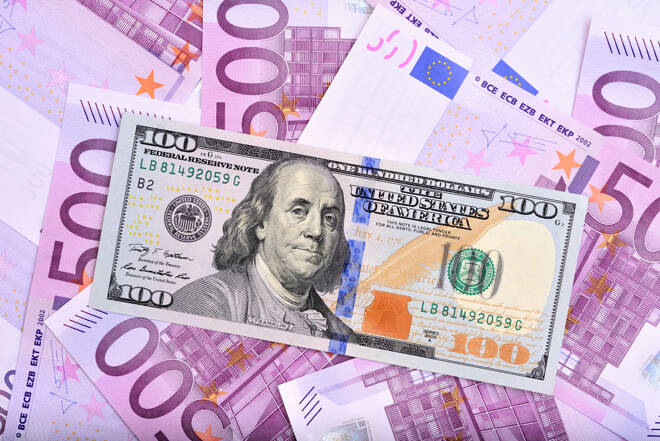Advertisement
Advertisement
German Business Sentiment and U.S Consumer Confidence Put the EUR and USD in Focus
By:
Dollar and Yen support persist ahead of the FED monetary policy decision tomorrow. Stats from the Eurozone and the U.S may do little to distract the markets.
Earlier in the Day:
It is a relatively busy start to the day on the economic calendar this morning. The Aussie Dollar was in action in the early hours.
For the Aussie Dollar
Inflation and business confidence were in focus this morning.
In December, the NAB Business Confidence Index slid from 12 to -12. Economists had forecast a more modest decline to 10.
According to the December Survey,
- The spread of the Omicron strain and threat to the economic recovery weighed on business sentiment.
- Employment weighed heavily, with businesses facing worker shortages.
- Capacity utilization and forward orders both declined, with price pressures persisting at the end of 2021.
- The business conditions index fell 3 points to 8 index points in December.
Of greater influence, however, were inflation figures for the 4th quarter.
In the 4th quarter, Australia’s annual rate of inflation accelerated from 3.0% to 3.5%. Economists had forecast a pick up to 3.2%. Quarter-on-quarter, consumer prices increased by 1.3% after having risen by 0.8% in the previous quarter. Economists had forecast a 1.0% rise.
According to the ABS,
- The most significant price increases in the 4th quarter were for new dwellings (+4.2%) and automotive fuel (+6.6%).
- Domestic accommodation and holiday travel also contributed (+4.8%), with easing of restrictions driving demand.
- Annually, a 32.3% increase in automotive fuel was the largest contributor. Prices of goods rose 4.3%, with prices for services up 2.3%.
The Aussie Dollar moved from $0.71490 to $0.71722 upon release of the figures. At the time of writing, the Aussie Dollar was down by 0.01% to $0.7144.
Elsewhere
At the time of writing, the Japanese Yen was up by 0.19% to ¥113.730 against the U.S Dollar, while the Kiwi Dollar was down by 0.33% to $0.6678.
The Day Ahead
For the EUR
It’s a relatively busy day ahead on the economic calendar. Germany’s Ifo Business Climate Index figures for January are due out. While the headline figure will be key, the markets will also be eyeing business sentiment towards the economic outlook.
With the Omicron strain less of a factor, a pickup in business expectations should be expected following Germany’s January PMIs.
At the time of writing, the EUR was down by 0.11% to $1.1314.
For the Pound
It’s a relatively quiet day ahead on the economic calendar. CBI Industrial Trend Orders for January are due out. With little else to consider, expect Pound sensitivity to any weak numbers. Doubts linger over the BoE’s interest rate path for the year, however. Disappointing numbers could further test more bullish projections following last week’s retail sales figures.
At the time of writing, the Pound was down by 0.07% to $1.3478.
Across the Pond
It’s a relatively quiet day ahead, with consumer confidence figures for January the key stat of the day. House price numbers are also due out but should have a muted impact on the Dollar and market risk sentiment.
At the time of writing, the U.S Dollar Spot Index was up by 0.03% to 95.946.
For the Loonie
It’s a quiet day ahead. There are no material stats due out of Canada to influence the Loonie. The lack of stats will leave the markets to focus on tomorrow’s Bank of Canada monetary policy decision.
At the time of writing, the Loonie was down by 0.06% to C$1.2645 against the U.S Dollar.
For a look at all of today’s economic events, check out our economic calendar.
About the Author
Bob Masonauthor
With over 28 years of experience in the financial industry, Bob has worked with various global rating agencies and multinational banks. Currently he is covering currencies, commodities, alternative asset classes and global equities, focusing mostly on European and Asian markets.
Advertisement
